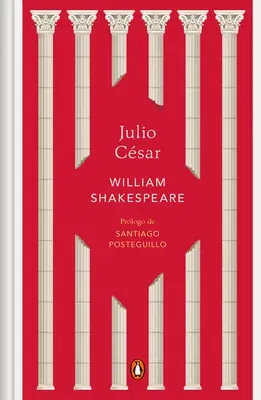Una obra imprescindible de Shakespeare sobre la ambición, el poder y
la traición en el marco fascinante de la antigua Roma.
De regreso a Roma tras su exitosa campaña en España, Julio César se hace
nombrar cónsul y dictador perpetuo. Es entonces cuando, en defensa de la
República, Casio pone en marcha una conspiración para asesinarlo con
ayuda del noble Bruto. Sin embargo, Marco Antonio volverá la opinión
pública en contra de los conspiradores, en una jugada que llevará a los
lectores a reflexionar sobre el honor, la ambición y la integridad.
En el imprescindible prólogo escrito para nuestra edición, el novelista
y experto en literatura inglesa Santiago Posteguillo destaca la plena
vigencia de esta pieza en la que el ejercicio de la autoridad llama a
los peores excesos políticos.
«Todo el mundo debería leer la obra de teatro Julio César de
Shakespeare, al menos, una vez en la vida». --Santiago Posteguillo
ENGLISH DESCRIPTION
William Shakespeare's classic tragic play The Tragedy of Julius
Caesar. Julius Caesar is the ultimate story of political intrigue,
ambition, betrayal, and the fall of the Roman Republic.
It is one of several plays written by Shakespeare based on true events
from Roman history, such as Coriolanus and Antony and Cleopatra.
The year is 44 BC and Julius Caesar is at the height of his powers. The
play depicts the moral dilemma of Brutus as he joins a conspiracy formed
by a group of Roman senators who realize that in order for the republic
to be saved, they must murder Julius Caesar and prevent him from
becoming dictator of Rome. But the senators have different motives: some
are spurred on by envy of Caesar's greatness and others, by their
patriotism and love for Rome. Unwittingly, they set the course for one
of the bloodiest civil wars in history and the eventual collapse of the
great Roman republic.
Although the play is named Julius Caesar, Brutus speaks more than four
times as many lines as the title character; and the central
psychological drama of the play focuses on Brutus' struggle between the
conflicting demands of honor, patriotism, and friendship.
In the remarkable prologue written for this edition, novelist and
English literature expert Santiago Posteguillo highlights the full
legitimacy of this piece in which the exercise of authority calls for
the worst political excesses.

